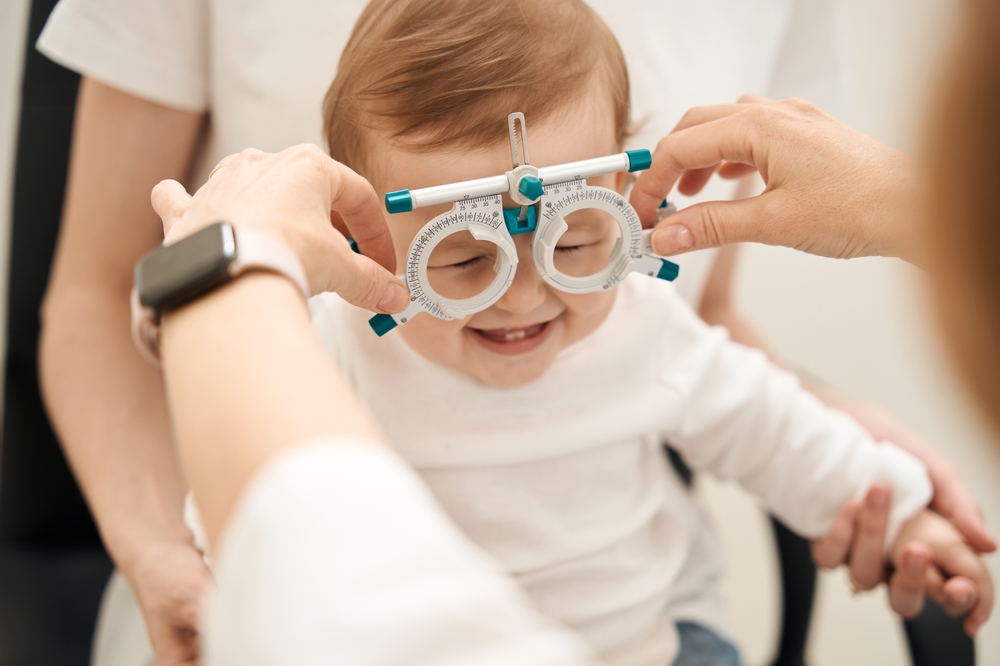
Infant vision care is about more than just identifying the need for glasses. It involves evaluating how the eyes and brain work together to support physical coordination, cognitive development, and future academic success. Early assessments can reveal potential concerns before they interfere with learning or daily life, helping your child thrive from the very beginning.
The Role of Vision in Early Development
Vision is the dominant sense in humans and influences how babies explore and understand their environment. From birth to age three, a child’s visual system is rapidly developing. During this time, they are learning to focus, track moving objects, coordinate eye movements, and develop visual-motor integration. These skills lay the groundwork for crawling, walking, hand-eye coordination, and eventually reading and writing.
If any part of this process is delayed or disrupted, it can impact the child’s ability to reach key developmental milestones. Conditions like amblyopia (lazy eye), strabismus (eye turn), and binocular vision dysfunction may not be immediately obvious but can lead to learning difficulties and behavioral challenges later on if not identified early.
Why Vision Development Matters
While most parents associate eye exams with glasses or spotting blurry vision, comprehensive infant eye care involves assessing vision development. This includes evaluating how well the eyes work together, how visual information is processed by the brain, and whether visual skills are developing at the appropriate rate.
A child may pass a basic vision screening at a pediatrician's office and still have underlying visual developmental issues. That is why a functional eye exam performed by a developmental optometrist is so important. Detecting these concerns early allows for timely intervention, which can help improve outcomes in learning, attention, and coordination as your child grows.
Early Detection at No Cost
Recognizing the importance of early eye care, the American Optometric Association developed the InfantSEE® program. This public health initiative provides a no-cost comprehensive eye assessment for infants between 6 and 12 months of age, regardless of family income or insurance coverage.
Through InfantSEE®, we can evaluate visual acuity, eye alignment, eye health, and visual-motor development. This early evaluation can identify signs of potential problems that might otherwise go unnoticed until the child enters school and begins to struggle with academic tasks.
Setting Your Child Up for Success
Infant vision care should be a key part of your child’s healthcare routine. The earlier potential visual development issues are identified, the better the chances for successful treatment. Vision therapy and other interventions can make a significant difference in a child’s academic and personal development.
Schedule Your Infant’s Eye Exam at The Center for Vision Development
Healthy vision is essential for your child’s growth and learning journey. By prioritizing early eye care and understanding the importance of visual development, you are setting the stage for future success.
At The Center for Vision Development, we are proud participants in the InfantSEE® program. Schedule your infant’s comprehensive vision evaluation and give them the best possible start in life. Visit our primary location in Annapolis, Maryland, or call (410) 268-4393 to book an appointment today.











